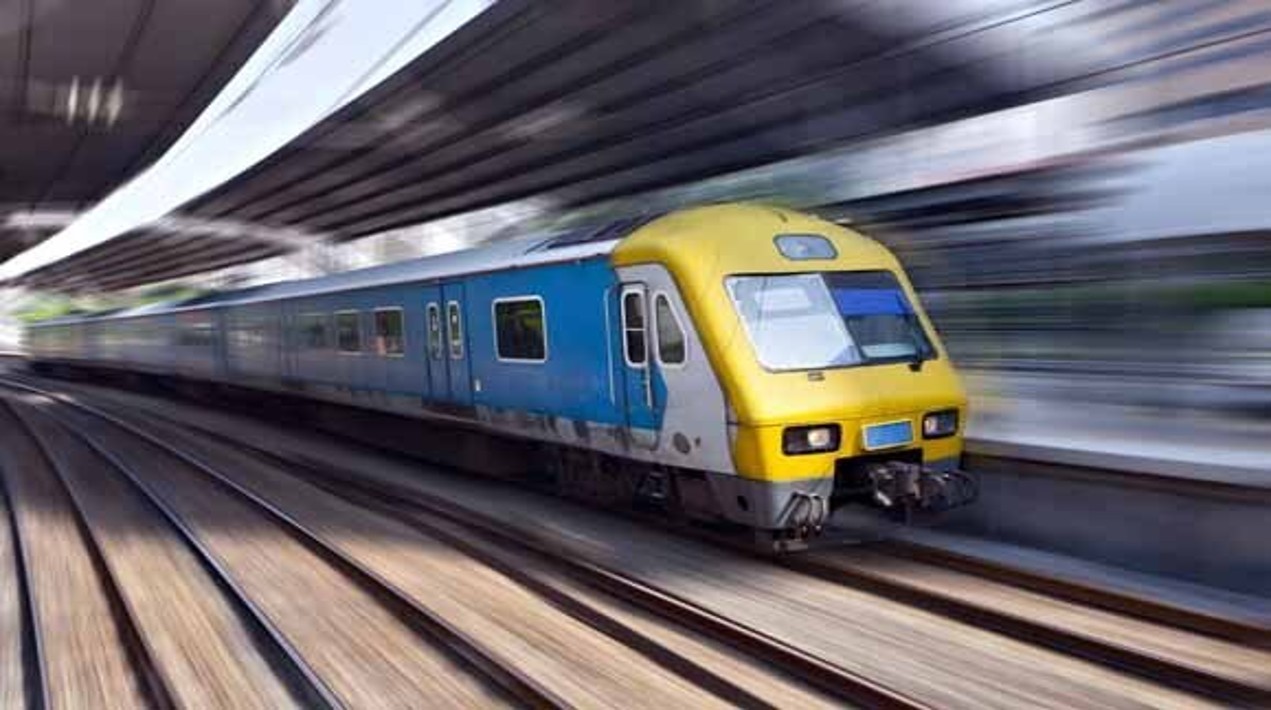
|
Getting your Trinity Audio player ready...
|
The Hong Kong Polytechnic University (PolyU) received funding from the MTR Academy’s 2023 MTR Research Funding Scheme for six forward-looking research projects aimed at exploring advanced railway technology applications. PolyU researchers from the Faculty of Construction and Environment and the Faculty of Engineering will lead these innovative research projects to initiate cutting-edge technologies for the future advancement of railways. These six projects received a total funding of HK$7.25 million.
The funded research projects encompass a broad spectrum of potential applications for environmental, social, and governance aspects of rail operations and smart community development. Leveraging PolyU’s academic and research excellence in construction, environment, and engineering, these projects developed innovative solutions for emergency evacuation, achieving sustainable development goals, noise control in railway engineering, autonomous modularised trains, and fire resilience.
Launched by the MTR Academy in February 2023, the MTR Research Funding Scheme supported forward-looking research projects that explored, shaped, and realised the mass public transport systems of tomorrow, breached the boundaries of current solutions and thinking, and offered insights into achieving services and operational excellence for tomorrow’s transport. The maximum total funding for each proposal was up to HK$1.5 million for three years.
The faculty of Faculty of Construction and Environment will be developing the following:
- Intelligent Emergency Digital Twin System in Metro Station for Fire Evacuation
The proposed advanced safety monitoring system utilises cutting-edge technologies such as AIoT, computer vision, and deep learning to achieve a smart response and evacuation process during a fire emergency. This system can anticipate the movement of people and the risk of stampedes during a fire incident, offering real-time guidance through dynamic exit signs. Furthermore, it can identify the status and actions of individuals to locate those requiring immediate assistance near the fire scene and relay this information in real-time to firefighters and rescue teams.
- Integrating Fire and Toxicty Predictions through CFD-MD Simulations for Improved Modelling of Pedestrian Movement and Fire Resilience Designs in Metro Stations
The recognition of combustion byproducts that are crucial for toxicity, including those produced during the burning of specific building materials, remains a challenge. This project aims to create a novel approach that combines and models the nonlinear pyrolysis-combustion kinetics using Molecular Dynamics characterisation of thermal degradation, validated by thermal gravimetry data. It also considers the formation pathways and predictions of toxic chemicals and smoke/soot particles, which will contribute to the design of firefighting and evacuation systems.
- Development of a Novel Inerter-based Rail Damper for Minimising Ground-borne Noise Generated by Railways Using a Deep Learning Framework Informed by Physics
The use of rail dampers is an effective method to reduce structure-borne noise caused by railway vehicles. However, these dampers face installation challenges and performance limitations. To address these issues, this project proposes a new rail damper design based on inerters within a metamaterial structure. This design aims to improve the transmission of forces within a mechanical system. Additionally, a physics-informed neural network approach with a time-sequencing element will be applied to optimise the structural design.
Meanwhile, the Faculty of Engineering will be developing the following:
- Development of an Electromagnetic Energy Harvesting System for Powering Monitoring Systems in the Hong Kong MTR System
The objective of this project is to create a sustainable energy supply system for wireless sensor networks (WSNs) by employing electromagnetic energy harvesting (EMEH) techniques that do not disrupt the operation of the railway system.
Utilising EMEH techniques to energise WSNs will establish a durable and comprehensive monitoring network, facilitating the advancement of sustainable and intelligent railway systems. The project aims to deliver a cost-effective, efficient, reliable, scalable, and sustainable solution for powering railway monitoring and condition assessment systems.
- Planning and Operation of Future Railway Systems Using Autonomous Modular Trains and Virtual Coupling Signalling
This project presents a vision for future railway systems, achieved through the implementation of autonomous modular trains operating under virtual coupling signalling. This approach is designed to manage the temporal and spatial variations in passenger demand effectively. The proposed plan encompasses three phases: the development of optimisation models and algorithms for scheduling, the exploration of rescheduling methods, and the investigation of energy-efficient trajectory planning.
- Advancing Environmental, Social, and Governance (ESG) Initiatives in the MTR for Achieving Sustainable Development Goals and Enhanced Service Quality
This project seeks to establish a systematic and comprehensive criteria system for assessing performance in relation to ESG and sustainable development goals (SDGs). By integrating multi-criteria decision-making methods and systems dynamics, the innovative multidimensional assessment tool can account for the interconnections and interactions among ESG and SDGs. It identifies complex cause-and-effect relationships and critical factors, analysing them both qualitatively and quantitatively. This novel tool for evaluating and enhancing performance related to ESG and SDGs is applicable not only to Metro/Rail operators but also to various other fields and cities.
OpenGov Asia reported earlier that the Automotive Platforms and Application Systems R&D Centre (APAS) entered into a strategic cooperation agreement with a China-based science research institute to support the development of autonomous vehicles and new energy vehicles in the Greater Bay Area (GBA).
This agreement aims to foster collaboration among government agencies, automotive industry enterprises, technology organisations, and other stakeholders in both Hong Kong and Mainland China. The goal is to promote the growth of the autonomous vehicle and new energy vehicle industries in the GBA through joint activities and cooperative efforts.
















